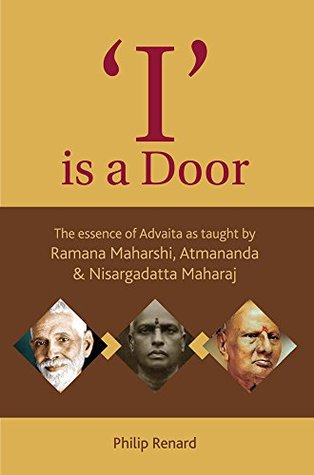More on this book
Kindle Notes & Highlights
'I' is a Door: The essence of Advaita as taught by Ramana Maharshi, Atmananda & Nisargadatta Maharaj
Read between
August 15 - August 19, 2018
In reply Ramana would say that as long as you experience the objective as separate from the subject you are looking from a dualistic point of view at yourself, and so you have to stress the aspect of consciousness only.
Thus, he did not think it to be helpful at all to honour the ‘differencelessness’ or nonduality in his actual activities as teacher and police officer. He considered it a pitfall to shout all too soon that ‘everything is Consciousness’ in a worldly or relational environment, and he continued pointing out ‘difference’ as long as this was the true state of affairs to the student.
Seducer, fades away as soon as you understand that you need not let yourself be carried away by Her to Her forms of creation. You just have to notice What is seeing Her. “Meditate on that which knows you are sitting here. Your feeling that your body is here is identification with the body, but that which knows that this body is sitting here is the expression of the Absolute.”8 The liberating character of the ‘I am’ principle is present as much in the knowing aspect as in the aspect of surrender. At this point the approaches of jñana (knowingness, understanding) and bhakti (devotion) are
...more
Noticing the body sitting here, for instance, could be called
‘knowingness’. This knowingness is in fact Knowing as such, and this is the liberating element, because knowingness is literally the expression of the Absolute, as said in the quote above. Absolute Consciousness or Knowing* expresses itself as ‘knowing something’. So ‘consciousness’ and ‘the Absolute’ are not two different things, as is often imagined on the basis of many of Nisargadatta’s statements. There is only one Consciousness (or Awareness; it depends on the language-framework of the speaker or translator which term is considered ‘correct’). It has an
“Tamas is overcome by rajas and sattva. Rajas is overcome by sattva. Sattva dissolves of its own accord when pure (shuddha).”
All passages in which Ramana was speaking about the aspect of cleansing (shuddha and shuddhi) could be considered as pointing to a kind of in-between level.
Like the contemporary Dzogchen-teacher Tsoknyi Rinpoche says, “The knowing quality itself remains undistracted.”


